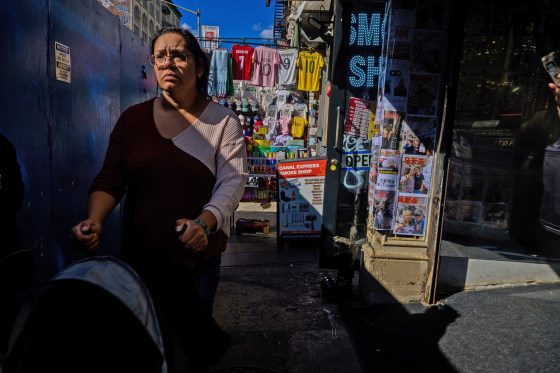Tourists and locals alike know they can emerge from the dingy subway stations along roughly five blocks of New York City’s Canal street to be greeted with rows of sparkling, polished designer knockoff bags, watches, jewelry — and their hawkers.
This week was different. On Tuesday, a federal immigration raid on street vendors who power the mini-economy of Canal’s sidewalks sent many retreating into the shadows. Federal immigration agents arrested nine individuals.
“The vendors, they’re gone,” photographer Harlan Erskine, who works in the neighborhood, said Wednesday. “It feels like an odd holiday.”
But New Yorkers are resilient, and by Thursday afternoon the neighborhood appeared to be slowly trickling back to life. A 45-year-old sunglasses vendor, who gave his name only as Michael, said he felt the pressure to keep working.
“I have to work, do you think the president of the United states is going to pay my rent?” he said. “Hell no.”
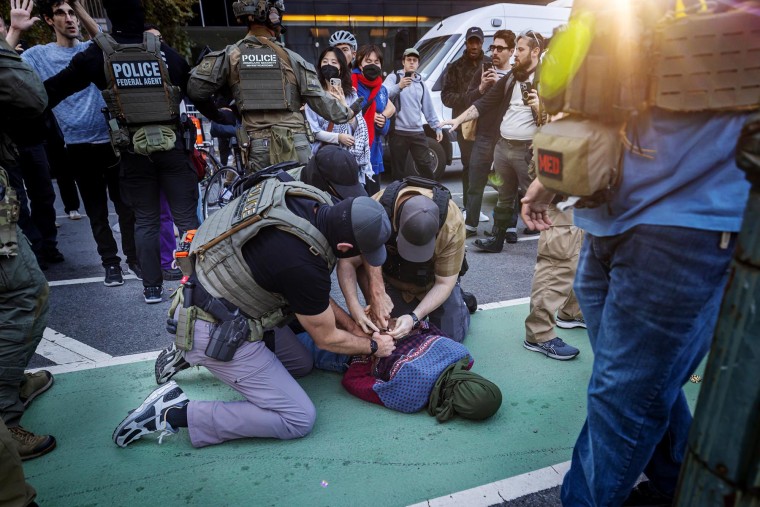
It’s a quintessentially New York City statement, capturing a quintessentially New York City moment. That same defiant spirit was on display during Tuesday’s raid, when the dozens of masked federal immigration agents who descended on Canal street were greeted by residents who hurled profanities and angry taunts in protest and recorded the scene.
The Department of Homeland security on Wednesday described the operation as a “targeted, intelligence-driven enforcement operation on Canal street” that “focused on criminal activity relating to selling counterfeit goods.”
“Despite violent rioters who assaulted and obstructed law enforcement by blocking vehicles, nine criminal illegal aliens were arrested,” the DHs said in a statement, adding that the suspects’ records include charges such as robbery, burglary and counterfeiting.
A history of crackdowns and resilience
For decades, Canal street has been synonymous with New York’s underground economy — a place where tourists bargain for imitation designer goods and immigrants carve out livelihoods.
These blocks have seen numerous NYPD crackdowns and federal stings targeting the counterfeit merchandise. The luxury industry has long argued that counterfeit sales siphon billions from designer brands each year, fueling an illicit global trade. Yet each time, the street has rebounded. Many of the vendors — often West African and Chinese immigrants — return, driven by a demand for cheap luxury goods and the lack of better economic opportunities.
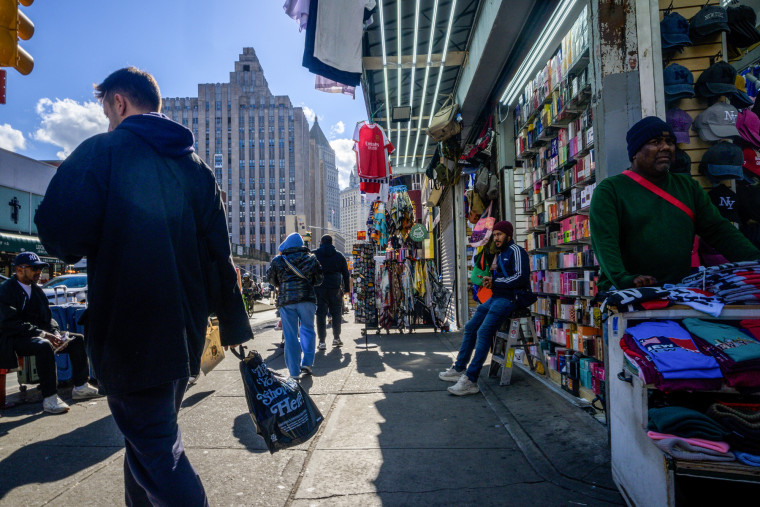
“I think it just felt so targeted to see street vendors being rounded up and detained just for trying to make a living,” said Assefash Makonnen, the communications director of the advocacy group African Communities Together. “Canal street is known for this vending culture and I feel like it is definitely an attack on Black immigrants, but this is really an attack on the culture of New York and like a really iconic part of our city.”
DHs on Thursday declined to answer questions about the status of the vendors following their arrest or address concerns about the raid by advocacy groups and community members.
A bulk of the arrests occurred near Canal and Church street, a longtime meeting point for shoppers looking for knockoff luxury handbags.
In the immediate aftermath, there were barely any visible street vendors on Canal street between West Broadway and Centre street. While dozens of hawkers normally fill that third -of-a-mile-long stretch, only two stands were open for business a day after the raids. A sign taped to a traffic barrier a few blocks away read “ICE kidnapped 40 people on Canal/Church,” with a legal defense hotline included.
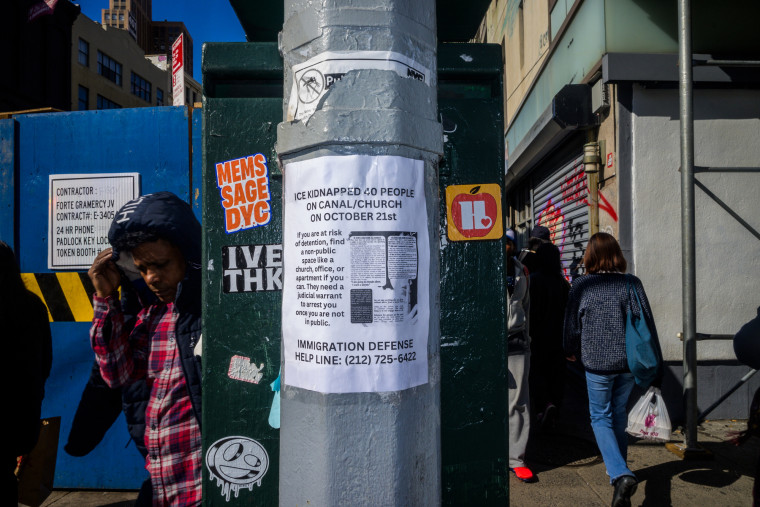
The same two vendors returned Thursday, joined by two others and a handful of sellers flashing laminated cards advertising knockoff handbags and jewelry. still, the crowds were thin and the usual hustle subdued.
Fassa Bandiougou, 53, who came to the U.s. from Mauritania 27 years ago, was back on Canal street Wednesday selling phone cases.
“Of course I have to come out here and work. If I don’t, then who is going to take care of me or pay my bills,” Bandiougou said.
He added that he makes $100 to $150 a day and he tries to send $200 a month back to his home country to support his mother, wife and four kids.
Edwin Jean, a Brooklyn resident who uses laminated cards to hawk knockoff handbags on Canal street, said the raid shook the vendor community.
“some of my good friends, they’re locked up and not here. But I really can’t do anything about that, you know?” Jean said. “Yeah, people are scared and I don’t know if they’re [other vendors] coming back. They don’t want to take that risk and end up in jail.”
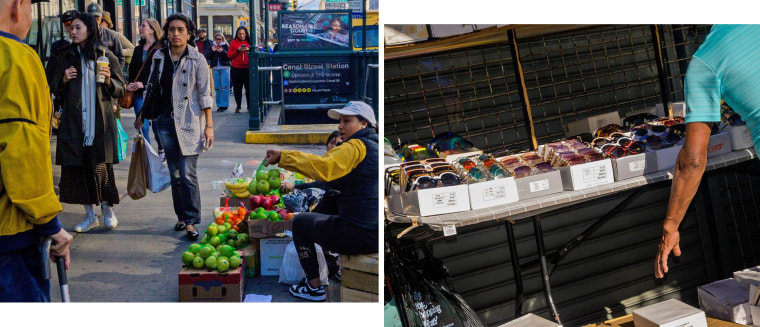
Tourists, too, noticed the change. Abby Ivers, a college student from Georgia visiting with her sister, said shopping for knockoffs was a part of their New York ritual.
“We were worried that they were not going to be out here anymore,” Ivers said, moments after her backstreet purchase on Thursday. “It’s just really sad — I mean this is how they make their money, even if it’s technically not the best way of doing that.”
At least one storeowner voiced his support for the crackdown.
“On the street with the vendors, people cannot even walk on the sidewalk,” said David Gonzales, manager of a Canal street gift store near Cortlandt Alley. “Now they can. I’m OK with it [federal action]. I’m legal. I do everything legal here so I don’t have anything to be worried about.”
Advocates call for more support
Bethany Li, executive director of the Asian American Legal Defense and Education Fund, whose offices are located blocks away from the site of the raid, denounced ICE’s actions.
“What we saw in terms of the threats and intimidation from federal law enforcement on Canal street was horrific,” Li said. “These raids are impacting so many communities of color across the board.”
But, Li said, the raid also showed how public resistance to ICE’s action is building. Protesters gathered at nearby Foley square on Wednesday to draw attention to the raid.
“I think it’s so important for essentially bystanders to be standing up for immigrants because not all immigrants can resist in that same way,” she said.
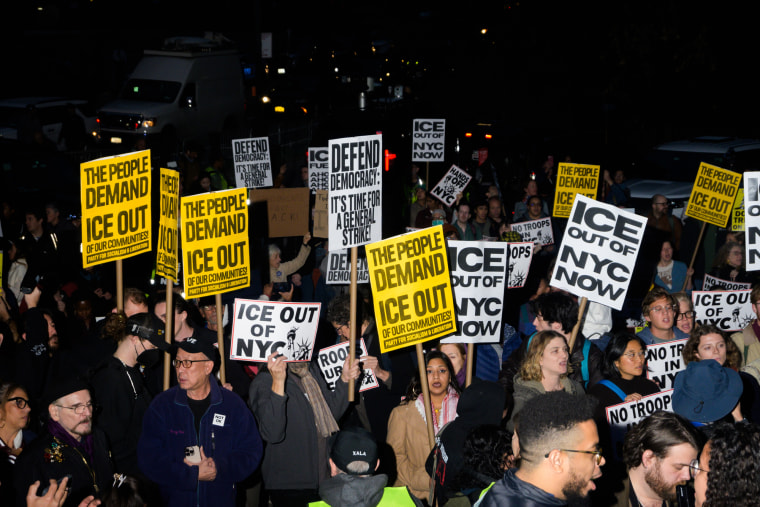
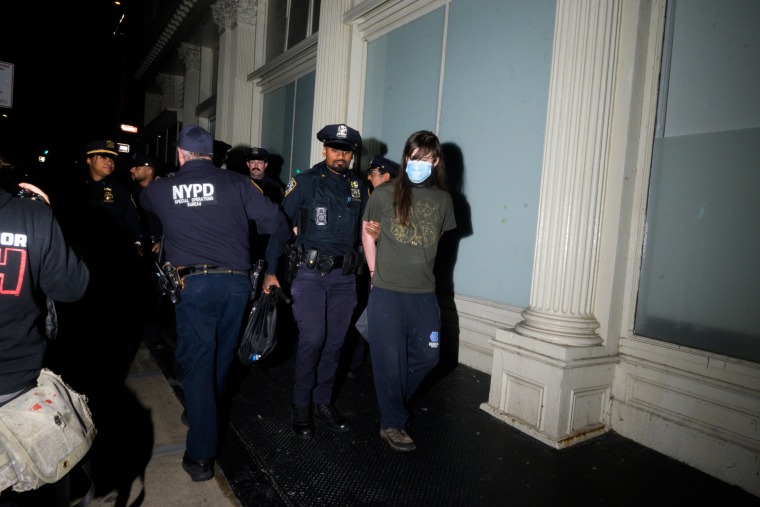
The nine men arrested were all in the United states illegally, DHs said. Five were from senegal and one each was from Mali, Mauritania and Guinea. DHs didn’t identify the country of origin of one of the men.
The agency said it also took five protesters into custody, accusing four of assaulting law enforcement and one of obstruction.
DHs told NBC News on Thursday that the protesters had been released pending further investigation with the U.s. Attorney for the southern District of New York.
Makonnen, of the group African Communities Together, said they’ve been working closely with street vendors and other local organizations to ensure they know their rights and the resources available to them.
Li said her advocacy group is also focused on continuing to educate immigrants and push the city and state to provide more services for the “huge range of immigrants and migrants who are impacted by these ICE raids, as we very clearly saw on Canal street.”
Jean, the handbag vendor, said no amount of fear will stop him from working. He said he took Wednesday off, not because of ICE fears, but because he had to take his daughter to the dentist.
“Donald Trump don’t pay my bills,” he said.
